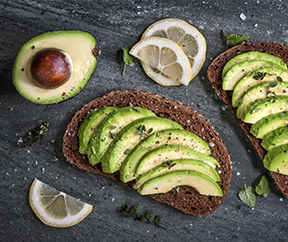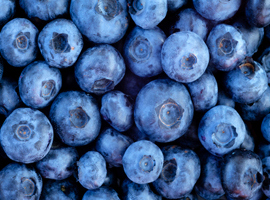Yates Account
Join now
Create a Yates account today!
Sign up to join the Yates Garden Club for monthly e-mails packed with seasonal inspiration, tips for success & exclusive promotions.
Plus if you’re a Garden Club member you can take part in the Yates Growing Community - a blog to share successes, get advice & win prizes in fun challenges along the way!

Forgot password
Enter the email address associated with your account, and we'll email you a new password.

Grow your own avocados
Avocados are rich in vitamins, antioxidants, fibre and healthy monounsaturated fats, so they’re a power house of nutritional goodness. If you’re keen on creating home grown avocado guacamole, salsa and salads, then consider including some avocado trees in your garden.
Avocados are mainly grown in warm areas of the north island of New Zealand, however they can also be grown in a warm frost protected spot in slightly cooler areas.
Here are a few important tips when it comes to growing avocados at home:
-
Avocados need moist but well-drained soil. Poorly drained soil can quickly lead to root rot and plant death.
-
Choose a sunny, sheltered site that is protected from frost and wind.
-
Avocado flowers contain both male and female organs which open twice over 2 days. When the flower first opens it’s female, when it re-opens on the second day it’s male. The timing of this flowering classifies avocados into either A or B types.
-
Although there can be some self-pollination in warm areas, planting 2 different varieties (from an A and B type) will help improve pollination and fruit set.
-
‘A’ varieties that are great for growing in medium sized backyards include Haas and Reed. ‘B’ varieties include Bacon and Fuerte. Grafted plants will fruit earlier than seedling trees.
-
Avocados will not ripen on the tree. Pop a too-firm avocado in a paper bag with a banana for a few days to help it soften.
Avocados perform best when planted into soil that’s been enriched first with a concentrated source of organic matter like Yates Dynamic Lifter Organic Plant Food. Yates Dynamic Lifter will help improve the quality of the soil, encourage earthworms and beneficial soil microorganisms and provide the tree with gentle nutrients as it establishes.
Reapplying Yates Dynamic Lifter every 6 weeks from spring to autumn will help ensure the trees have enough nutrients to promote healthy foliage and a great harvest.
Mulching around the root zone with an organic mulch, such as bark chips, will help reduce moisture loss and add further organic matter to the soil as it breaks down.
Protecting feijoas from insects & diseases
Deliciously sweet and fragrant feijoas can be susceptible to a few insect pests and diseases during spring:
-
Scale – sap sucking insects that appear as small grey, brown, pink or black coloured ‘bumps’ along stems and leaves which deplete plants of sugars and nutrients and can cause patches of leaf yellowing.
-
Mealy bug – small white fuzzy sap sucking insects that feed on plant juices.
-
Caterpillars – chewing insects that can eat through leaves and also curl leaves up with webbing (leaf roller caterpillars).
-
Sooty mould – a fungal disease that appears like a dark grey or black ash like film that covers stems and leaves. It grows on the sweet honeydew excreted by sucking insects like scale and mealybug. Control these insect pests and the sooty mould will disappear.
Both sap sucking insects and caterpillars can be controlled by spraying feijoas each week with Yates Natures Way Organic Citrus, Vegie Ornamental Spray Ready to Use.
Beautiful blueberries

If home grown, freshly picked blueberries sound tempting, then it’s time to find a spot at your place for a blueberry bush or two.
‘Climax’ is an early season variety with medium to large dark blue berries with a very good flavour. The bush has an open and upright habit. Climax is a ‘Rabbiteye’ type so is self-fertile but will produce heavier crops if cross pollinated with another Rabbiteye variety like ‘Tifblue’ or ‘Centurion’.
Rabbiteye varieties grow well in all areas of NZ and are partially deciduous. Blueberries prefer an acidic, well-drained soil. In areas with alkaline soil (a pH higher than 7), applications of Yates Soil Acidifier Liquid Sulfur every month will help lower the soil pH.
Some blueberries can also be grown in pots. Choose good quality potting mix such as Yates Premium Potting Mix and a large pot to give them enough room to grow.
Blueberries will benefit from regular applications of a complete plant food during spring. Yates Thrive Strawberry Berry Fruit Liquid Plant Food is ideal for blueberries as it’s fortified with extra potassium to encourage fruiting.
















Share
Share this article on social media